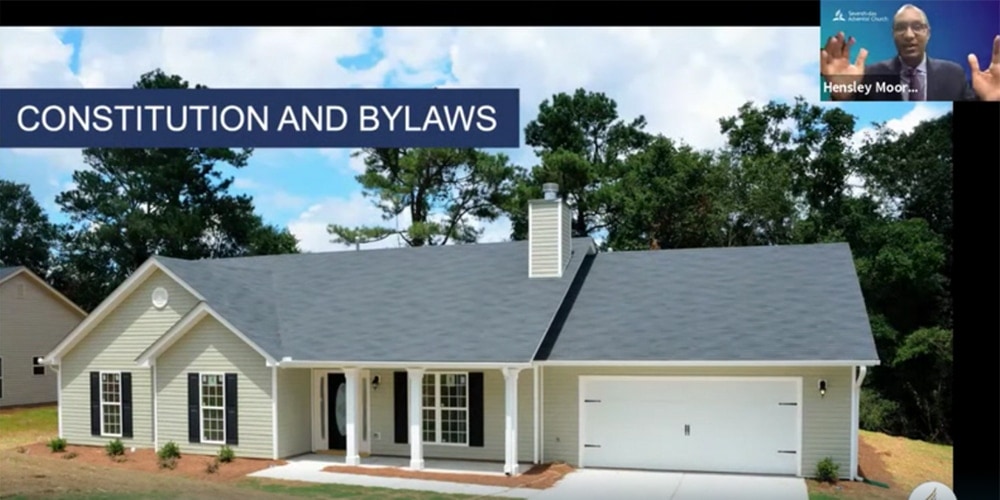
During the Seventh-day Adventist Church’s Annual Council business meetings on October 7, 2020, the Executive Committee of the church approved a motion to recommend to the next General Conference Session three amendments to the organization’s Constitution.
The first amendment is to Article V: General Conference Sessions would allow the Executive Committee to determine the timing of subsequent General Conference Sessions when one has been postponed whenever “world conditions make it imperative to do so.”
During discussion of the motion, Karnik Doukmetzian, general counsel for the General Conference of Seventh-day Adventists, clarified that “the General Conference Executive Committee is empowered by the Constitution to designate and announce the date and location of General Conference Sessions or Special Sessions. It is also given the authority to postpone a Session for up to two years when world conditions make such postponement necessary and to provide notice of such meetings or postponements to all its constituent organizations.”
The proposed addition to the article reads: “In the event that the General Conference Executive Committee exercises its authority to postpone a Session, it shall also have the authority to set the subsequent regular Session at such time and place as it shall see fit, not to exceed five calendar years from the date of the postponed Session.” Although the 2020 General Conference Session was rescheduled for May 2021 due to the coronavirus pandemic, the date for the next Session will remain 2025.
The second amendment provides for delegates to attend meetings virtually and vote electronically, instead of on site and in person, provided that they can hear each other and be heard. Hensley Moorooven, undersecretary for the Adventist Church, explained that the church’s pioneers “did an excellent job ensuring that we would meet physically under one roof and conduct meetings with people who are physically present. But, within this constantly shifting environment, we have had to be agile and even proactive. The committee is making some amendments, some provision, for electronic presence for virtual attendance to a Session.”
The third change would allow for Session committees to meet virtually. This would affect the four main committees that meet during regular Sessions: Nominating, Steering, Church Manual, and Church Constitution and Bylaws.
Ted N. C. Wilson, president of the General Conference of Seventh-day Adventists, noted that these amendments would not be implemented until a quorum of delegates is able to meet in Indianapolis at the General Conference Session in May 2021 and vote approval. The Executive Committee makes recommendations to the General Conference Session, which, in business session, has ultimate authority to amend the Constitution.
According to David Trim, church historian and director of the Office of Archives, Statistics, and Research (ASTR) at the General Conference, postponing a General Conference Session is not unprecedented. At least four other Sessions were rescheduled. The 1917 Session was postponed due to the outbreak of World War I; the 1934 Session was rescheduled due to financial hardship during the Great Depression; and the 1940 and 1945 Sessions were postponed due to the start of World War II and its continued effects.
The original version of this story was posted by the Adventist News Network.